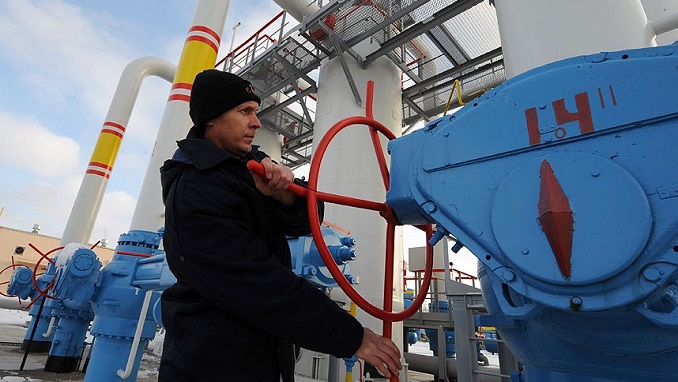The European Union imports 69% of its natural gas, with over a third of its imports (37%) coming from Russia, according to the latest available data from the European Commission. About 33% of the gas in the EU is imported from Norway, and 11% from Algeria.
The figure shows that Russia still has a firm hold on the continent’s energy supplies, despite diversification efforts going on for years. Brussels has vowed to cut its dependency on Russian gas after the crisis in Ukraine, but Russian exports to Europe have risen to record levels in the last two years, CNN writes.
President Vladimir Putin was given a warm welcome in Vienna on Tuesday, the 50th anniversary of Austria becoming the first western country to import Soviet gas during the Cold War.
“It is unusual for any European leader to receive President Putin for a state visit in the capital given the current tensions between Russia and Europe,” said Kristine Berzina, a senior fellow at The German Marshall Fund of the United States.
But the hostility ends when it comes to energy, as European leaders are well aware that millions of homes would be without heating if Russia turns off the gas taps.
Russian state media hailed Putin’s visit to Austria, quoting the president’s statement about how “Russia and Austria are doing a lot to ensure Europe’s energy security.”
According to the Russian president, the two countries are working to expand cooperation. He cited as an example an agreement between Gazprom Export and Austria’s OMV on gas supplies until 2040 inked on Tuesday.
“The implementation of the Nord Stream 2 project continues as well. Mr. Federal Chancellor confirmed that Austria’s leadership sees this project in a positive light as purely economic,” he stressed.
Russia has in the past used Ukraine’s dependency on its energy as a way of exerting political pressure on the country. Some European leaders are worried that Russia could adopt the same strategy towards the European Union in retaliation for sanctions.
“But this has not really happened,” said Marco Siddi, a senior research fellow at the Finnish Institute of International Affairs. “Sixty-seven percent of Russia’s tax revenues come from energy exports, Russia needs this trade even more than the European Union,” he added.
Plans for a new gas pipeline that would bypass Ukraine have been in the works for years, but Europe is deeply divided over the project. Opponents say the Nord Stream 2 pipeline would only increase the European Union’s dependence on Russian energy. But Germany and some other countries argue that it would give Europe more energy security.
“The political weight that is given to the gas relationship differs from country to country,” said Berzina. “I would argue in Austria, and in Germany … the economic ties around energy are given outsized political weight.”












